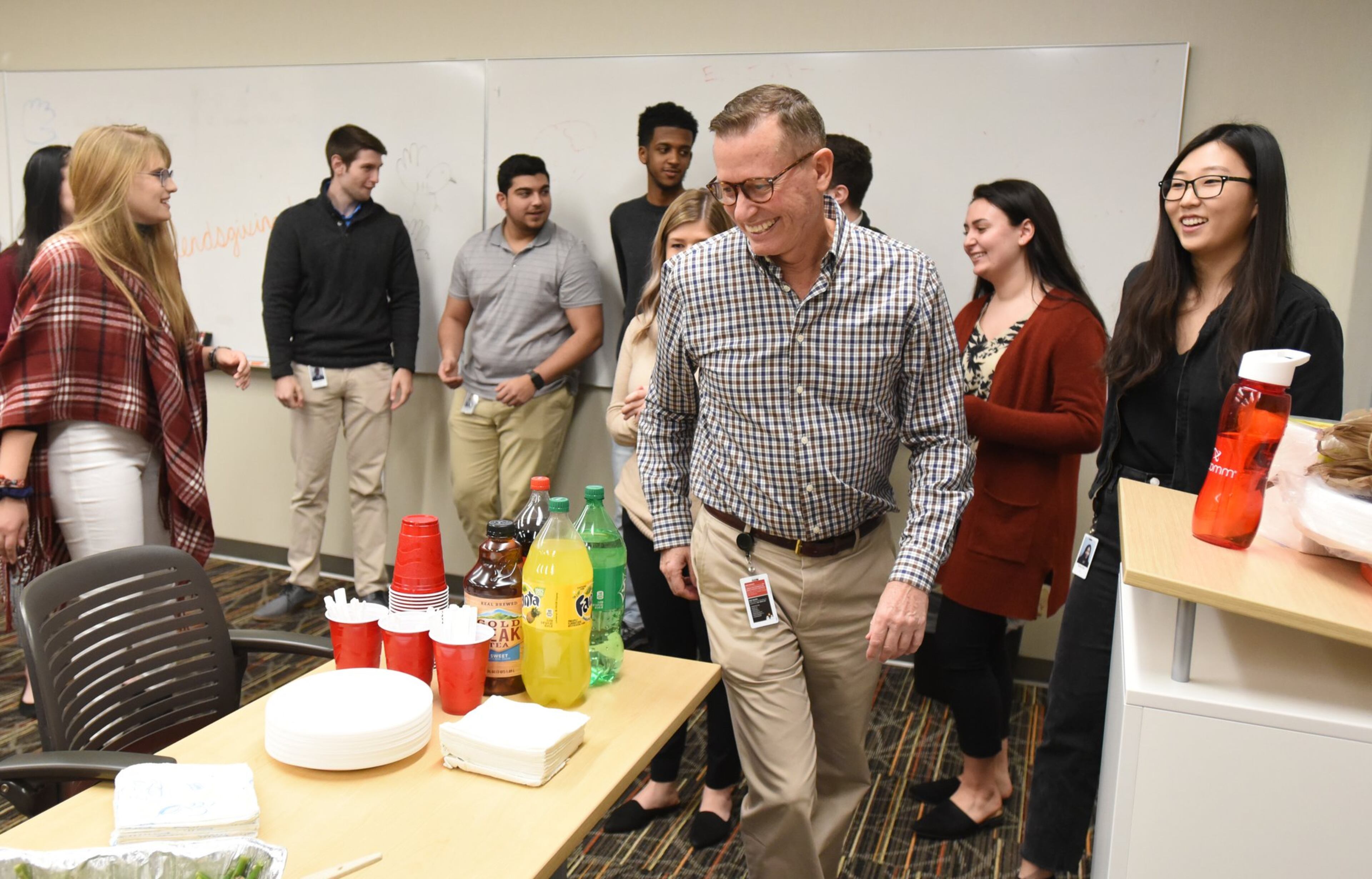Georgia system upgrading core college education curriculum

Kennesaw State University computer science student Rebekah Roepke said the courses in her major teach the technical skills necessary for a career in her field, but not all of the communication skills, the “soft skills” many employers say students are not learning in college.
Roepke comes to Atlanta several days a week for an internship at InComm, a financial technology company, where the student said she’s working on those communication skills, particularly by doing presentations.
InComm’s executive vice president, Bob Skiba, was on a committee involved in the early stages of an effort by Georgia’s public university system to update the general education, also called core curriculum, for its undergraduate students. The goal is to better prepare students for their educational journeys, and to align with the demands of business executives looking to fill jobs.
More students are seeking degrees for specific careers, particularly technology, but those leading the effort believe students need to be competent in a variety of subjects, as well as proficient with their verbal or writing skills.
>> READ | Prepare college students to find careers after graduation
“I think they’re trying to get students to be more well-rounded,” said Roepke, 21, a junior.
A new committee of about 40 administrators, faculty and students met this month to discuss the next steps. System officials are seeking feedback on its website, where anyone can answer three questions such as “What changes would you suggest making to the current general education structure to align with the new principles?” They hope to get approval from the state’s Board of Regents by next spring and have the new course requirements in place by no later than 2021.

The curriculum work comes as enrollment in the University System of Georgia's 26 institutions increased for the seventh consecutive year this fall to more than 333,000 students. State funding also increased this year by about $200 million to $2.6 billion. Its six-year graduation rate is 59%, about the same average for public colleges and universities nationwide.
>> RELATED | Enrollment in Georgia’s university system reaches another record high
The core curriculum upgrade is one of several changes the system’s chancellor, Steve Wrigley, has pushed as part of a long-term plan to improve student success. The system earlier this month got approval from the regents to expand online learning opportunities and address barriers for working and adult learners through a new strategic plan. The system last year created a new degree called “nexus” for students considering careers such as financial technology or cybertechnology. It’s also requiring first-year students to take courses in potential majors, thinking they’ll be more engaged in the classes, and graduate sooner and with less debt.
The Georgia system requires students to take 14 core courses, or 42 credit hours. Students must take various courses in math, science, technology and the humanities, much like requirements in Georgia’s public high school system.

College enrollment has declined nationally in recent years, and educators are under increasing pressure to provide curriculum that students and adult workers find relevant.
Some argue the core curriculum in U.S. colleges is flawed because many of those early courses are unnecessary for what students want to learn. There’s also the big picture question: What should be the goal of a core curriculum?
Georgia State University student Yan Pimentel Cotta, who was born in Brazil, believes the curriculum should train students how to think, comprehend and debate the concepts they’re studying in the traditional form of a liberal arts education. Many students, he believes, come to college unprepared to do so and have trouble with these classes.
“They don’t understand why they have to learn (these courses),” said Cotta, 21, a junior majoring in philosophy.
His solution: better collaboration between public school systems and colleges.
>> MORE | Path to job often beings with college internships
It’s been a long time since the system updated its core curriculum. Tristan Denley, its chief academic officer, noted the last major changes were made in 1998, when Roepke and most of its students were infants or not even born. The last substantial changes came in 2009. The goals included ideas to allow greater flexibility for faculty to teach courses they believe students need and help students graduate on time.
The current effort has many of those goals, particularly flexibility, to stay current with popular careers.
“This is a once in a generation opportunity,” Denley said in a recent interview.
Some Georgia universities have made their own changes to their curriculum in the last year.
Kennesaw State, after discovering more than 90% of its students required more than 120 credits to graduate, made adjustments so that the majority of its programs now limit requirements to 120 credits. KSU officials hope the change will help students graduate a little sooner. Most university degrees across the country are fulfilled with 120 credits.
Georgia Tech this semester started a pilot program that allows students to explore interests outside of their major to “gain a greater breadth of knowledge across academic disciplines.” It was one of several changes made after Georgia Tech took a deep look to chart its academic future.

InComm’s Skiba said the company is doing its own training to help students enhance their soft skills. He’s hopeful the system’s update will result in opportunities for an “ever-changing” world.
Denley said the research from the first committee and survey feedback found students don’t always value or understand why they must take some courses. Another finding was students need diverse learning experiences.
“Why are we making historians study science? Why are we making scientists study history? What is the advantage of that? This is to help people understand that these different kinds of disciplines provide different kinds of lenses on the world that we live,” Denley said.
UNIVERSITY SYSTEM OF GEORGIA’S CORE CURRICULUM
Here are some of its current requirements:
- Students must take at least 42 credit hours, or 14 courses.
- They must have 7 or more credit hours in natural science, math and technology courses. At least 4 of these hours must be in a lab science course.
- They must have 6 or more credit hours in social science courses.
Source: University System of Georgia


